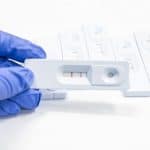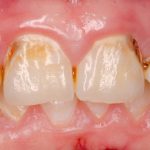Methamphetamine, or crystal meth, is an illicit stimulant drug identified as a white, bitter-tasting powder, a pill, or glass-like blue/white crystals or rocks. These different forms of the drug may be smoked, snorted, injected, or swallowed to trigger a powerfully addictive euphoria.
Unfortunately, the short-term and long-term effects of methamphetamine abuse can be severe.
Short-Term Side Effects Of Meth Use
When a person uses meth, the drug is absorbed into the blood and transported to the brain where it has a radical effect on the central nervous system (CNS), triggering a massive rush of dopamine. This causes euphoria and a wave of habit-building pleasure.
Immediate Effects
Short-term effects of meth use include:
- rapid or irregular heartbeat
- loss of appetite
- disturbed sleep patterns
- nausea
- itching and skin picking
- dry mouth
- erratic, violent, or aggressive behavior
- anxiety, paranoia, or hallucinations
Hyperactivity
Meth puts the body and all its functions in overdrive, temporarily increasing feelings of energy, alertness, and confidence.
But this hyperactivity is dangerous, as it can raise a person’s heart rate, breathing, body temperature, and blood pressure to dangerous levels.
Cardiovascular Problems
Cardiac arrest (heart attacks), stroke, and seizures can all be triggered by using too much methamphetamine, along with other types of organ damage and failure.
Long-Term Side Effects Of Meth Misuse
The high that comes with methamphetamine use is followed by a crash and hangover as the body’s neurotransmitter levels drop, leading to lasting feelings of exhaustion, pain, and depression.
As a result, many who abuse methamphetamine chronically do so to escape the misery the drug itself causes. This can lead to a cycle of highs and lows that make maintaining relationships, responsibilities, and any form of healthy or sustainable lifestyle impossible.
Other long-term effects of meth misuse include:
- anhedonia, an inability to feel pleasure during normal activities
- compulsive drug cravings and changes to behavior and personality
- brain damage, leading to memory and cognitive decline as well as repetitive bodily movements
- critical mental health changes like paranoia, hallucinations, mood swings, and psychosis
- internal organ damage, including damage to the heart, liver, kidneys, and lungs
- premature osteoporosis (brittle bones)
- high blood pressure and increased risk of heart attack, stroke, and sudden death
- insomnia and lasting sleep disturbances
- malnutrition and unhealthy weight loss
- premature aging
- skin sores and infections
- severe mouth and dental problems (“meth mouth“)
- financial, relational, and legal jeopardy
- sharply reduced lifespan and reduced physical/mental well-being
Health Problems Related To Meth Abuse
Additionally, individuals may experience other negative health effects depending on their route of ingestion:
- chronic cough, bronchitis, and pneumonia for those who smoke meth
- nasal irritation, nosebleeds, and perforated septum for those who snort meth
- track marks, sores, collapsed blood vessels, and increased risk of contracting HIV and hepatitis for who inject meth
Meth Addiction Treatment
Substance use disorder is treatable, and methamphetamine addiction is no exception. However, recovery from methamphetamine addiction is a long and difficult process that likely requires specialized care.
There are currently no government-approved medications used to treat methamphetamine addiction. As a result, treatment programs for meth addiction may include:
Medical Detoxification
The detox process for methamphetamine often lasts between two days and two weeks as participants work through methamphetamine withdrawal symptoms while under close medical supervision.
Meth withdrawal symptoms may include:
- anxiety
- severe depression
- fatigue
- drug cravings
- psychosis
Behavioral Therapy
Cognitive-behavioral therapy (CBT), motivational enhancement therapy (MET), and other forms of individual and group counseling are used to help participants adjust and improve their thinking and behavior.
CBT in particular is used to help participants recognize, avoid, and cope with situations and thought processes that may trigger relapsing meth use.
Dual Diagnosis Treatment
Methamphetamine use is often related to a variety of other mental illnesses ranging from ADHD to depression, PTSD, and schizophrenia. These conditions must be addressed and included in a dual diagnosis treatment program for the recovery effort to be effective.
Aftercare Support
Unfortunately, those who have abused meth in the past are at high risk for eventual relapse. Accordingly, treatment programs for those in recovery from methamphetamine abuse may include a variety of aftercare services such as:
- contingency management
- peer support groups
- employment counseling
- case management
To learn about our treatment programs for meth addiction, please contact Northeast Addictions Treatment Center.
Sources
Written by
Northeast Addition Editorial Team
©2024 Northeast Addition Center | All Rights Reserved
This page does not provide medical advice.






